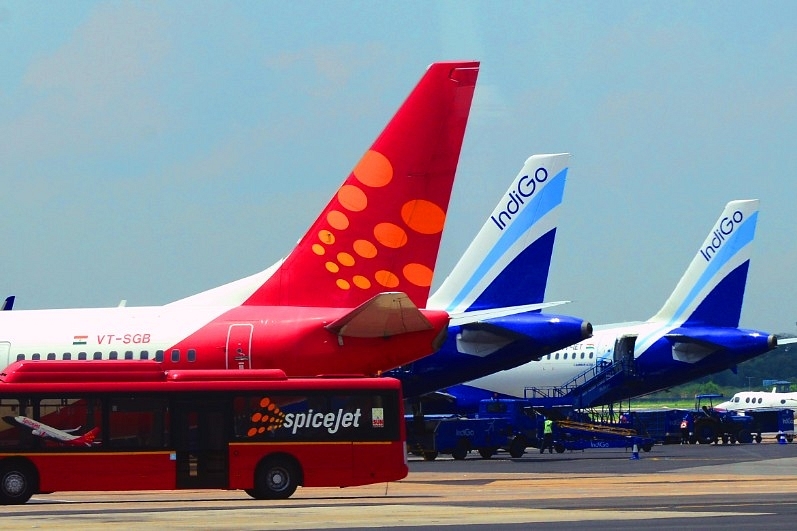Insta
The Fault In Our Algos? CCI Initiates Probe Into Ticket Booking Software Suspecting Price Fixing By Airlines

The picture featuring planes of various airlines parked at the IGI airport on July 25, 2013 in New Delhi, India. (Photo by Ramesh Pathania/Mint via Getty Images)
The Competition Commission of India (CCI) has started an enquiry into airline ticket pricing suspecting price fixing, reports Economic Times.
The Commission noticed similar patterns of pricing of tickets which may be due to anti-competitive processes.
A senior official of CCI has been quoted by ET as saying, “ We found that the pattern of pricing of tickets by all airlines were similar. This raises questions on whether pricing is competitive or airlines are following a similar pattern. We are looking into pricing by all airlines.”
The enquiry comes at a time when airlines are struggling to generate revenue due to excessive competition in the industry. Most of them are making losses unable to meet even their operational costs. The airlines have also complained that IndiGo, the largest player has been increasing its capacity on different routes, thus further squeezing the possibility of raising fares.
The airlines currently use the bucket system for ticket pricing in which the fares increase as the date of travel approaches. Airlines argue that this is a software-based process that takes into account historical booking patterns.
Experts allege that software algorithms can also be rigged to to comply with anti-competitive practices and therefore, a thorough investigation of the algorithm is also necessary.
“Specifically in relation to the airline Industry, it is important to also understand the way algorithms are designed since the programmes are ultimately written or taught by humans in order to derive the best outcome for their employer, which may not always be the best outcome for the market,” said Avimukt Dar, Partner, IndusLaw, a law firm.
Support Swarajya's 50 Ground Reports Project & Sponsor A Story
Every general election Swarajya does a 50 ground reports project.
Aimed only at serious readers and those who appreciate the nuances of political undercurrents, the project provides a sense of India's electoral landscape. As you know, these reports are produced after considerable investment of travel, time and effort on the ground.
This time too we've kicked off the project in style and have covered over 30 constituencies already. If you're someone who appreciates such work and have enjoyed our coverage please consider sponsoring a ground report for just Rs 2999 to Rs 19,999 - it goes a long way in helping us produce more quality reportage.
You can also back this project by becoming a subscriber for as little as Rs 999 - so do click on this links and choose a plan that suits you and back us.
Click below to contribute.
Latest